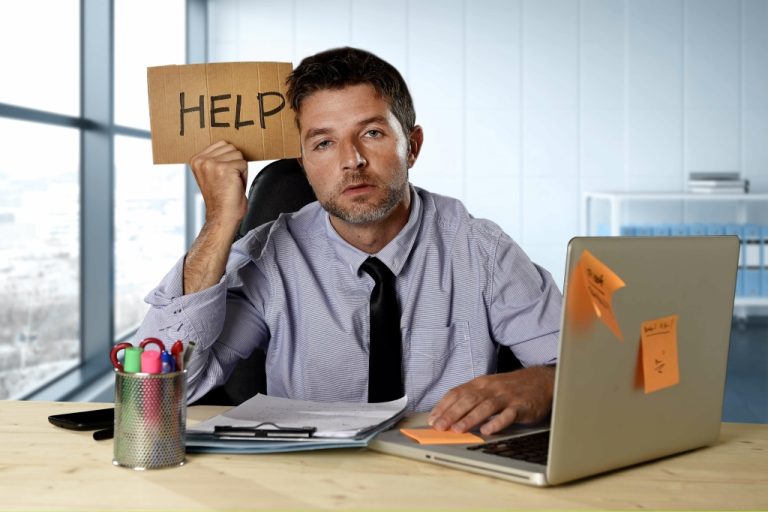People may try to quit using a substance multiple times before succeeding, or they may not realize they have an addiction at all. However, professional addiction treatment with a comprehensive, individualized care plan can make a huge difference. When does substance use transform from risky behavior into complete dependency?
- Oftentimes, when people relapse, they will binge on a drug, worsening their addiction.
- Located in a serene, discreet setting designed for deep healing, Samarpan combines global best practices with holistic, compassionate care tailored to each individual’s journey.
- If you notice signs of addiction, like regular substance use or changes in behavior, it’s time to act.
- With so many individuals suffering, understanding the different stages of addiction can help you recognize it and allow you or your loved one to seek appropriate help and support.
- The young adult type typically begins drinking in college or early adulthood.
What is the best treatment for addiction?

The appropriate treatment for addiction depends on the phase and severity of the substance use. In the experimentation phase, education and counseling can be highly effective in addressing the underlying motivations for trying substances. Family therapy or motivational interviewing may also be helpful in providing support and encouraging healthier coping mechanisms. For those in the regular use or risky use phase, treatment often focuses on identifying and addressing patterns of substance use before dependency develops.
This website utilizes various technologies that are meant to make it as accessible as possible at all times. We utilize an accessibility interface that allows persons with specificdisabilities to adjust the website’s UI (user interface) and design it to their personal needs. This book has helped so many men and women; and we want to give it you for FREE. Get signed up today and discover how to unlock the grip of addiction and get back to living your best life.
These negative consequences can push the individual into the “contemplation” stage. Precontemplation is the first stage in the stages of change model of addiction and behavior change. People in the precontemplation stage typically do not consider their behavior to be a problem. Long-term support is critical for sustaining recovery and preventing relapse. Research indicates that continuing care for at least one to two years post-rehabilitation significantly increases chances of long-term sobriety.
Teen Trauma Treatment
An overwhelming number of current heroin users cite prescription drug misuse as the starting point of their opiate addiction. At this next stage on the path to addiction, something that was previously considered recreational or temporary becomes a lifestyle. The user discovers that life is not as comfortable or satisfying without using the substance and begins to use it as a crutch to overcome everyday life. With the exception of those who accidentally fall into addiction (usually as a result of taking a prescription drug), substance addiction follows a formula. What starts out as fun or relaxation can end up being traumatic and even deadly.
Understanding the Four Phases of Addiction
Outpatient counseling, cognitive behavioral therapy (CBT), and group therapy can help individuals regain control and prevent escalation. Once dependency or addiction is established, more intensive interventions are typically required. Medical detoxification is often the first step, providing supervised care to manage withdrawal symptoms safely. Regardless of the phase, treatment should be personalized to meet the individual’s specific needs and circumstances.

What types of treatment are available for substance abuse?
Once physical and psychological dependence forms, a person is considered to be addicted. (7) The symptoms and implications of drug addiction vary depending on the type of heroin addiction drug they’re using. However, it doesn’t change the fact that recovering from addiction is extremely difficult. No matter how deep into addiction someone has fallen, there is always hope for recovery.

- Even if they recognize that their use is out of control, they feel unable to stop.
- Addiction is treatable, but breaking the cycle of addiction is not an easy process.
- The transition from regular use to risky use and abuse is characterized by continued substance consumption despite negative consequences.
When people are in the precontemplation stage, they are often not very interested in hearing about negative consequences or advice to quit their choose the correct cycle of addiction addiction. The Perspective stage follows, where they gain a deeper understanding of their experiences. This newfound clarity can foster personal growth and realization of the changes necessary for recovery. Here, individuals mentally prepare themselves to make changes in their lives. This involves setting intentions and gathering the motivation needed to embark on the challenging journey towards recovery. With increased use, the body starts to build a tolerance to the substance.
The Derek Jeter Center
This stage is vital as it initiates actionable steps and increases urgency to overcome addiction while addressing potential withdrawal symptoms. One thing to consider when choosing a drug addiction program is if it offers dual diagnosis treatment. Oftentimes a person will develop a drug addiction after trying to self-medicate symptoms of a mental illness. Other times symptoms of mental illness, such as depression and anxiety, will develop due to chronic drug use. The result is a never-ending cycle that is difficult to break without treating both the drug addiction and the mental illness.
At this point, the use is typically infrequent, and there is no significant impact on their daily life or functioning. Addiction can be defined as a chronic and relapsing disorder characterized by compulsive drug-seeking and use, despite negative consequences. It is considered a brain disease that affects the reward and motivation systems, leading to a loss of control over substance use behaviors. During this critical phase, family members and loved ones often notice substantial behavioral and physical changes. Intervention and immediate substance abuse treatments become essential to prevent severe consequences, including overdose or long-term damage.
What are the early signs of addiction in the experimentation phase?
At this stage, the person may start to think about quitting, but they will find it difficult to do so. This is because the substance has started to change the way their brain works. Mental health conditions, stress, and grief can all trigger the need for soothing and distraction. Drugs and alcohol can serve as a tool for self-medication, providing temporary relief from symptoms of depression, anxiety, trauma, and others. It’s often triggered by something, like the environment you live in, stressors, and mental health conditions.
We and our partners process data to provide:
Addiction is a progressive illness that only gets worse when left untreated. If you’re ready to admit that you have a problem and embark on the road to recovery, speak to one of our compassionate counselors today about substance abuse recovery in Tampa. Social factors, such as peer influence, family dynamics, and socioeconomic status, also play a role in addiction. Environmental triggers and availability of substances can influence the initiation and maintenance https://betwin99login.com/understanding-the-sinclair-method-for-alcohol/ of addictive behaviors. Though substance abuse and addiction have similar characteristics no matter what substance is involved, the types of drug dependence are grouped into different substance categories. These include alcohol abuse, cannabis or marijuana abuse, hallucinogen abuse, cocaine abuse, opioid abuse, and sedative abuse.


